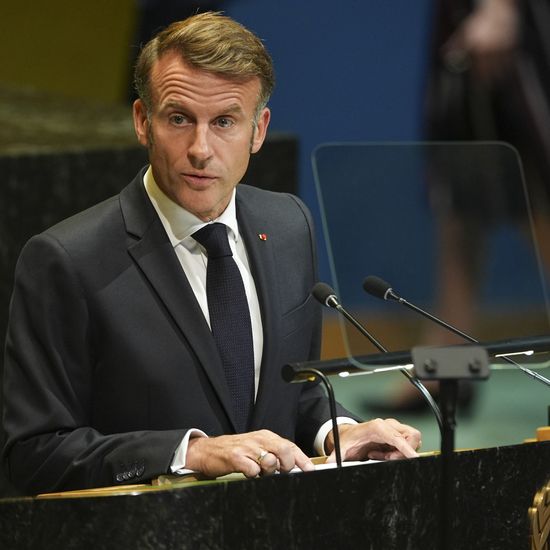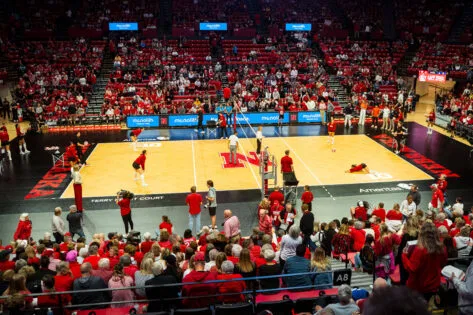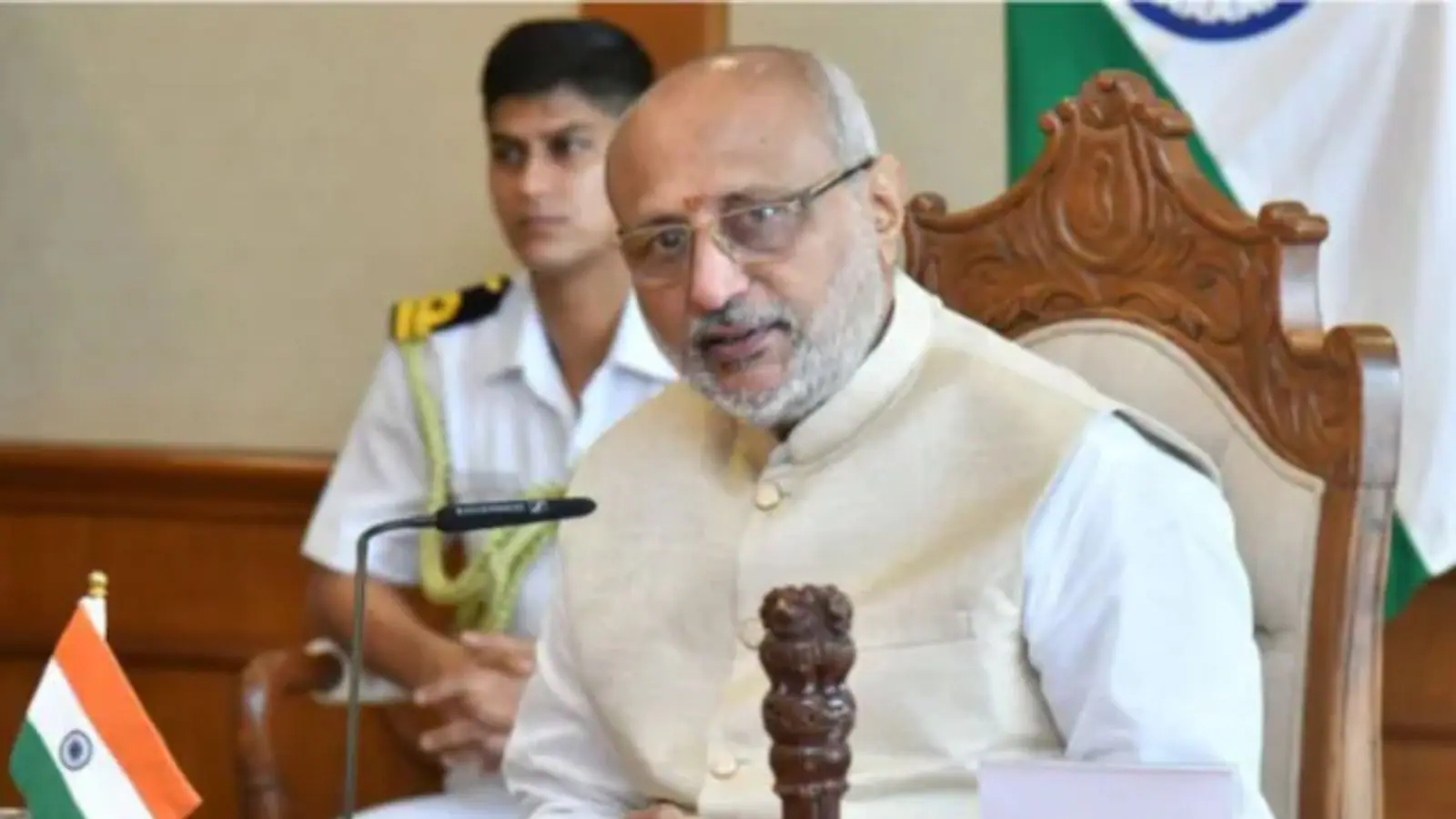By John Irish And Michelle Nichols
Copyright independent

“We must do everything within our power to preserve the very possibility of a two-state solution, Israel and Palestine living side by side in peace and security,” the summit host, French President Emmanuel Macron, said at the beginning of a planned three-hour session at the United Nations.
“The recognition of the legitimate rights of the Palestinian people takes nothing away from the rights of the people of Israel,” he said before announcing the diplomatic move drawing lengthy applause from the audience.
Macron outlined a framework for a “renewed Palestinian Authority” under which France would open an embassy subject to factors such as reforms, a ceasefire and the release of all remaining hostages taken from Israel and held by Hamas in Gaza.
The Palestinian foreign ministry said it welcomed France’s recognition, describing it as a “historic and bold” move that supports efforts to achieve peace and implement a two-state solution.
But while the event, convened by France and Saudi Arabia, could boost the morale of Palestinians in their long search for statehood, it was not expected to deliver change on the ground.
The most far-right government in Israel’s history has declared there will be no Palestinian state as it pushes on with its fight against militant group Hamas in Gaza following the October 7, 2023, attack on Israel that killed some 1,200 people.
Israel has become increasingly isolated and drawn global condemnation over its military conduct in Gaza, where more than 65,000 Palestinians have been killed, according to local health authorities. In recent weeks, Israel has begun a long-threatened ground assault on Gaza City with few prospects for a ceasefire.
Andorra, Belgium, Luxembourg and San Marino were also expected to recognise a Palestinian state on Monday ahead of this week’s U.N. General Assembly, after Australia, Britain, Canada and Portugal did so at the weekend. Malta made the announcement earlier on Monday.
Israel has said such moves will undermine the prospects of a peaceful ending to the conflict in Gaza.
The two-state solution was the bedrock of the U.S.-backed peace process ushered in by the 1993 Oslo Accords. The process suffered heavy pushback from both sides and has all but died.
No such negotiations over a two-state solution have been held since 2014.
The United States and Israel boycotted Monday’s meeting. Israel’s U.N. Ambassador Danny Danon said Israel would discuss what action to take in response to the announcements of recognition after Prime Minister Benjamin Netanyahu returns to Israel next week.
“Those issues were supposed to be negotiated between Israel and the Palestinians in the future,” he told reporters ahead of the meeting.
The United States has told other countries that Palestinian recognition will create more problems, Secretary of State Marco Rubio said earlier this month.
Amid Israel’s intensified Gaza offensive and escalating violence by Israeli settlers in the West Bank, there is a growing sense of urgency among some nations to act now before the idea of a two-state solution vanishes forever.
France has driven the move, hoping that Macron’s announcement in July that he would recognise a Palestinian state would give greater momentum to a movement hitherto dominated by smaller nations that are generally more critical of Israel.
A delegation representing the State of Palestine has observer status at the United Nations – but no voting rights. No matter how many countries recognise Palestinian independence, full U.N. membership would require approval by the Security Council, where the U.S. has a veto.
While the majority of European countries now recognise a Palestinian state, two of the continent’s largest economies, Germany and Italy, have signalled they are unlikely to make such a move soon.
Germany is a long a strong supporter of Israel because of its responsibility for the Holocaust has grown more critical of Israeli policy, while insisting that recognition of a Palestinian state should come at the end of a political process to agree on a two-state solution.
The German government spokesperson also said on Monday there must be no further annexations in Israeli-occupied territory.
Italy said recognising a Palestinian state could be “counterproductive”.
On the ground, Prime Minister Benjamin Netanyahu has rejected numerous calls to end the campaign until Hamas is destroyed and has said he will not recognise a Palestinian state.
Netanyahu said in a statement on Sunday he will announce Israel’s response to Palestinian state recognition when he returns from the U.S., where he is scheduled to meet U.S. President Donald Trump.
Israel is considering annexing part of the occupied West Bank as a possible response as well as specific bilateral measures against Paris, Israeli officials have said, even though the recognitions are expected to be largely symbolic.
Annexation could backfire and alienate such countries as the United Arab Emirates, a global oil power and trade hub with wide diplomatic clout across the Middle East.
The United Arab Emirates, the most prominent of the Arab states that normalised ties with Israel under the U.S.-brokered Abraham Accords in 2020, has said such a move would undermine the spirit of the agreement.
The U.S. has warned of possible consequences for those who take measures against Israel, including France as host of the summit.
In Gaza, Palestinians were fleeing Israeli attacks on Gaza City on Sunday.
“Even if countries such as Australia, Canada, and France —who are now among those initiating this recognition — acknowledge Palestine, I believe there will still be no serious pressure on Israel to grant the Palestinians their rights,” said displaced Palestinian Nabeel Jaber.
In Tel Aviv, Israelis said the Palestinians turned down many chances to establish a state in the past.
“We’ve offered them peace about five times. They could have agreed to any one of those, and they never, ever chose peace. So why do we need to choose peace with people who want to kidnap, murder, rape our people? I don’t think we need to do that,” said film student Tamara Raveh, 25.
Israel has said it has no confidence in the 89-year-old Palestinian President Mahmoud Abbas keeping pledges to reform and modernise as outlined in a letter to Macron earlier this year.
Abbas and dozens of Palestinian officials will not be there in person. The US, a staunch Israeli ally, refused to issue visas and Abbas is due to appear via video.
Saudi Crown Prince Mohammed bin Salman is not attending despite co-hosting the event. The General Assembly agreed on Friday – by consensus, without a vote – that he could appear via video at Monday’s meeting.



